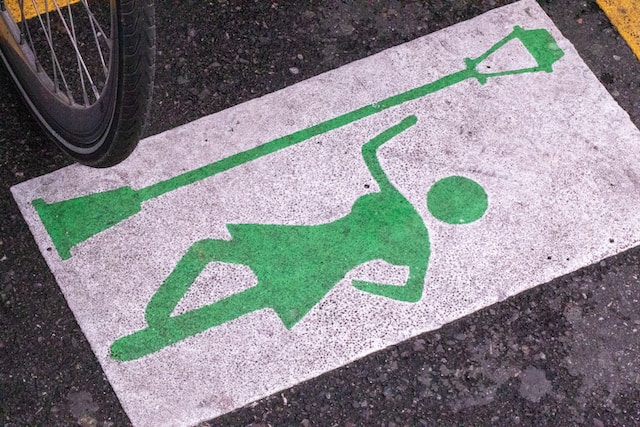Around the turn of the century, the German political classes sought to better protect women generally, and prostitutes in particular. Over twenty years later, however, it is clear they have failed to achieve their objective. Although prostitution in Germany was liberalised with good intentions – in an effort to move forward with the emancipation of women – Germany today has become a “paradise for human traffickers”, and forced prostitution is widespread.
WHETHER OR NOT TO LEGALISE PROSTITUTION: A NEVER ENDING STORY
At the time, the red-green government wanted to use the prostitution law to regulate the legal position of prostitution as a service, so improving the lives of prostitutes in Germany. Although the law appears at first glance to be a worthy solution to a concrete problem, however, the issue is actually about a great deal more than just politics and legislation. Essentially, the prostitution debate always revolves around certain questions. Should I be allowed to enjoy pleasure when this is at the cost of others? Should I be allowed to spend money on sex? How exactly should the limits of liberty be defined, and who is responsible for enforcing these limits – the state, the individual, or both?

The German Prostitution Law of 2002 is counter to the Swedish ban on buying sex, which has been in place since 1999. This alone is interesting, because in European public opinion, Sweden is generally viewed as playing a ground-breaking social-liberal role, which is reflected in strong democratic standards, high levels of liberty in a wide range of fields of life, and an extremely solid social system. Clients seeking to buy sex from prostitutes in Sweden have been punished for over two decades now, while in Germany and other European countries such as Italy and Spain, prostitution is extensively or completely legal, and hardly regulated at all.
In other countries such as Austria, on the other hand, prostitution is legal, but only under certain conditions. When you factor in just how many different opinions, theories, studies and analyses regarding prostitution are in circulation, as well as looking to history for lessons on the issue, it quickly becomes clear there are no simple or purely moral “right answers“ here. What is absolutely clear, however, is that the German Prostitution Law, while having been formulated with good intentions, has had negative consequences.
PROSTITUTION IN ITS CURRENT FORM IS COUNTER TO GERMAN BASIC LAW
Since the legislation was passed at the turn of the century, the sex industry in Germany has grownat a rate completely outstripping other countries. It is now estimated to produce annual turnover of around 15 billion euros, the majority of whom will have had to become prostitutes against their will, or at the very least have a complete lack of alternative options. The dark sides of unrestrained capitalism, paired with open borders, can be found in a decades-long spike in human trafficking, a trend which leaks out in the media from time to time – when lorries full of people are pulled out of traffic on Austrian motorways, for example. Many women who have come to Germany in hope of a better life, or are still doing so, fall victim to exploitation and end up in relationships based on dependency which they then have little or no chance of escaping.

Although precise figures are not available, there is little doubt that given the chance, the majority of these women would wish to earn their living in a different way than through highly dependent prostitution and being controlled by their pimps. Even if – and this is not in doubt – some women do sex work voluntarily and willingly, this does not come close to making up for the fate of all those who have had to subject themselves to forced prostitution and suffer from the current legislative, social, political and economic framework conditions, while others profit from them.
According to a new survey, current legislation on prostitution in Germany may even be unconstitutional. The first article of German Basic Law states: “The dignity of the person is inviolable. The obligation of all state authority is to respect and protect this dignity.” The dignity of Katharina M. was not protected or respected, either by her environment or by the state, for many years. Parts of her life are described in the book Schneewittchen und der böse König by Barbara Schmid. In this book, an estimated 25,000 “clients” disappear into a grey, gloomy mass in Katharina‘s memory. Some sections of the story, as told in the book, are simply unspeakable. It should be painfully clear that a fate such as hers, of which there are far too many today, has nothing in the slightest to do with a dignified life.
Elke Mack of Erfurt University concludes that through prostitution, people are degraded until they become objects, and autonomy is not guaranteed for prostitutes. Under the Basic Law, however, autonomy is guaranteed, and the concept that people should not be treated as objects in this way can be viewed as an expression of that person’s dignity. According to Mack’s interviews, state authorities work on the basis that between 90 and 95% of people actively working within prostitution are not doing so voluntarily, and these are exclusively women. Mack’s conclusion is that the issue of how we should deal with prostitution is not a moral question, but more about upholding basic rights. Guaranteeing prostitutes’ rights within the framework of legal prostitution was an illusion from the viewpoint of the constitutional state.
BAN ON BUYING SEX AS RESTRICTION OF CONSUMPTION – WHERE DO WE GO FROM HERE?
In amongst all its advantages and disadvantages, the idea of a ban on buying sex, also implemented in France and Ireland a few years ago, seems to contain an interesting aspect which could also be applied in other areas. Briefly, the ban on buying sex exists because people (usually men, in this case) exploit their position of power in order to enrich themselves at the cost of other people (normally women). Both the pimps and the clients view the prostitute as a “good” with which they can enrich themselves, financially for the pimp and by enjoying pleasure for the client. It should be underlined here that in the vast majority of cases, this transaction takes place against the will of prostitutes, and to their disadvantage in a situation offering them no alternatives. It is also worth mentioning that in Germany alone, there are now estimated to be between 250,000 and 500,000 prostitutes working.
However, this also demands that we confront other painful questions. The average, modern Western lifestyle is full of relationships of dependency which, unlike prostitution, cannot be so explicitly or directly experienced or noticed. Reaching for a bar of chocolate at the supermarket strikes a blow against the children labouring in cocoa production in Ghana, while typing on our mobile phones ensures that in future, people – primarily men, in this case – will continue to die in cobalt mines in the Congo for the sake of our batteries. All this really does happen, of course, but we are never usually forced to face it. In our role as consumers, we only see the goods we buy (as well as the advertising and stories designed to make our mouths water). We do not accept, or care about, the suffering that goes into producing those goods. On this point, we are no different from the client entering a brothel who thinks only of his own needs, and believes he can do with a woman as he wishes because it is his right as long as he is paying for it. The ban on buying sex restricts the liberty to satisfy one’s needs according to one’s own conceptions. Despite the fact that it is becoming clear that the state could play a regulatory role more often here in future, the question of how and why it should do so remains unclear in many cases. It can justifiably be assumed that in many cases, power-related and economic interests are in fact the fundamental decision-making criteria for state action – not safeguarding human dignity. If the corona and climate crises provide good reasons for bans, why not the exploitation of raw materials, other people and their labour? How is the dignity of the person respected when we consume items produced by people for starvation wages, before throwing them away within weeks because we want to ride the wave of the latest new trend? While it is unthinkable that consumption leading to the suffering of others will be extensively banned in future, it does show just how far we have come. When such a challenge seems completely unrealistic, human development is at its high point.
Translated by Tim Lywood
#Menschenhandel #Kapitalismus #Freiheit #Europa #Kriminalität #Bordell #Sexarbeit #Prostitution #AgainstHumanTrafficking #GegenMenschenhandel #EndExploitation #EndTrafficking #HopeForTheFuture #Österreich
